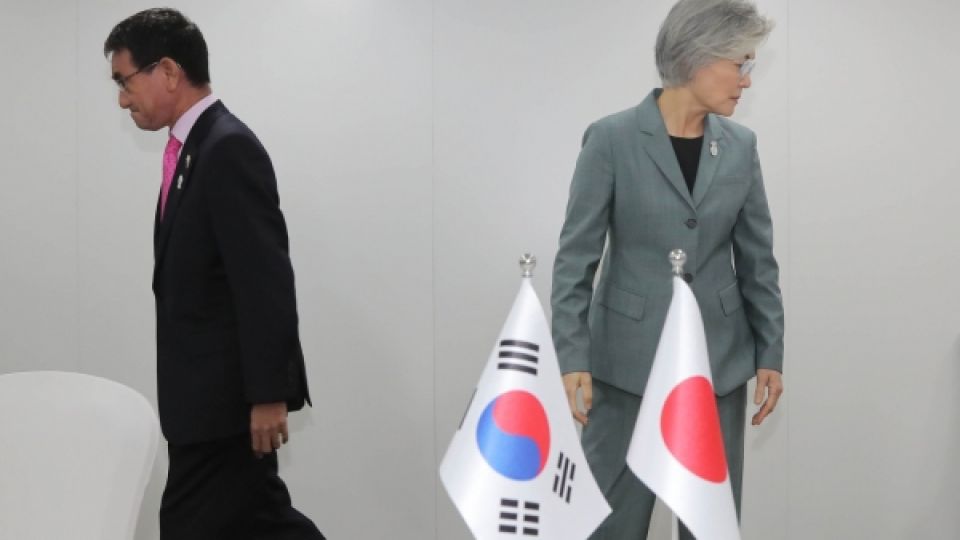August 6, 2019
Trade talks between the two sides have resulted in no movement.
Amid the accelerating deterioration of Japan-South Korea relations, the Japanese government is intensifying its arguments against the South Korean Supreme Court ruling involving former requisitioned workers that triggered the current situation.
The Japanese Foreign Ministry has cited records from negotiations between the two countries on the Agreement on the Settlement of Problems Concerning Property and Claims and on Economic Cooperation and insists that it is clear the ROK court ruling violates the bilateral agreement and contravenes international law.
The agreement, which was concluded in 1965, stipulates that the issue of compensation claims has been “completely and finally resolved.”
However, the South Korean Supreme Court ruled in October last year that the right for compensation for former requisitioned workers was not considered to be covered by the agreement, based mainly on the unfairness of Japanese colonial rule, and ordered a Japanese company to pay compensation.
As the South Korean government is not honoring the agreement and has also been increasingly critical of Japan’s measures to strengthen export controls, the Japanese Foreign Ministry decided to disclose on July 29 records from negotiations that clarify the position of the South Korean side at the time the agreement was reached.
According to the records, Seoul presented an eight-point outline of claims against Japan during negotiations. Repayment and compensation for the requisitioned South Korean workers were among some of the claims. All eight items were recognized in the agreement, providing the basis for the $300 million in grant aid paid by the Japanese government.
According to records from negotiations that took place on May 10, 1961, a South Korean representative said that it was only natural to demand substantial compensation for the mental and physical sufferings that were inflicted by forcible mobilization, in relation to compensation for damages incurred by requisitioned workers.
It is clear that South Korea has been seeking a way to justify claims for money that the ROK court ruled were not covered by the agreement.
The records also confirm Tokyo asked Seoul whether it would seek compensation for individual former requisitioned workers. Seoul replied that the claim would be made as a state and that it would make domestic payments to the extent necessary as a domestic measure.
In addition to the records of the negotiations, the Japanese Foreign Ministry has unveiled a translation of documents released by the South Korean government on the discussions of a joint committee between the public and private sectors, which was established in 2005 under the then Roh Moo-hyun administration. The committee had determined regarding the $300 million Japan paid under the agreement, that comprehensive consideration was given to the right of the claim to be made by the South Korean government as a state. It also determined that careful consideration was given to the fact that the funds were intended to resolve the issue of damages to compensate for the forced mobilization [of former requisitioned workers], among other issues.
In fact, the Roh administration concluded that it would be difficult to ask for additional compensation from Japan, and provided additional assistance to former requisitioned workers on behalf of the South Korean government.
At the time, President Moon Jae-in was a civil affairs secretary of the Blue House and a member of the committee.
The documents had been available in the past through information disclosure requests. However, the Foreign Ministry decided to publicize them to provide accurate information about the issue.
“The precedents of the International Court of Justice and other entities show that the history of the drafting of international treaties can be to a great extent referred to,” said a senior Foreign Ministry official.Speech


